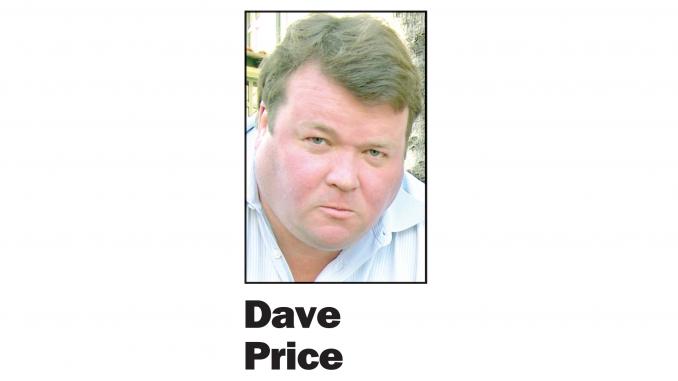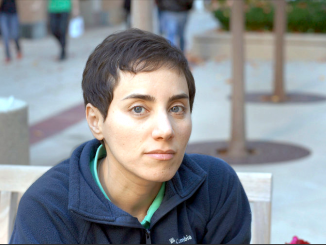
OPINION
BY DAVE PRICE
Daily Post Editor
Has President Trump’s claim that the press is the enemy of the people trickled down to the Palo Alto school board? I wonder, after reading a legal settlement the board unanimously approved on Aug. 21.
The settlement calls for the district to pay $150,000 to resolve a lawsuit filed by the parents of a Palo Alto boy who claimed that school employees improperly disclosed his genetic information and discriminated against him. It’s a case that’s drawn national attention.
The settlement includes this language: “(t)he settlement will not be disclosed by either party and that the plaintiffs will not contact the press regarding the settlement.”

California law makes all settlements by public agencies, including the Palo Alto Unified School District, a public record. Period.
However, none of the five school board members objected to the terms of this settlement at Tuesday’s meeting.
Why not amend the settlement?
I would have liked for at least one of them to have made a motion along the following lines: “I cannot support prohibiting the release of what is, by law, public information in California, and I don’t agree with forbidding anyone from speaking to the press. The press informs the community about our actions. So I move to send this settlement back to the lawyers so that this clause can be removed and resubmitted to the court. Then we’ll vote on it again.”
Nobody said anything like that at the Aug. 21 meeting.
This settlement sets a terrible example for the district’s students. It says that the board thinks it’s OK to hide information from the public and prohibit people from speaking to reporters. Both Gunn and Paly have outstanding journalism programs. Yet the two high schools are overseen by a school board that thinks it’s OK to gag people from talking to the press. Something’s wrong with that picture.
The pros and cons
The board’s defenders make three points.
First, the settlement was approved at a public school board meeting, so the public could have learned about it that way. True, but all the agenda said was that the board was going to have a closed-door meeting with its lawyer regarding a case that was only identified by a court docket number. To see the settlement, one would have to go to the U.S. courthouse or look it up at an online site where you pay to get court documents.
Second, the case involved confidential medical information about a juvenile. All of the confidential information was disclosed by the family when they filed their suit six years ago, and it’s been widely reported in the news. That’s why the gag order only pertained to the settlement, not the facts of the case.
Third, Mark Davis, the lawyer representing the school board, said in an email to the Post that disclosure “has the potential for stimulating further claims and lawsuits against school districts.” He said he added the “confidentiality clause” to “decrease the chance of further lawsuits against school districts and the payout of additional public funds.”
That implies that this was a nuisance lawsuit that should have never been filed in court.
But the lawsuit brought by James and Jennifer Chadam wasn’t frivolous. The questions they raised — whether a school district can disclose a child’s genetic information and whether a child can be discriminated against due to genetics — are serious matters. A decision could have set a national precedent. That’s not my opinion — that’s the opinion of the Obama administration’s Department of Justice, which filed a 37-page friend of the court brief in support of the boy’s family in 2016.
But the school district has its reasons for sweeping this suit under the rug.
The Chadams, when they enrolled their son at Terman Middle School in 2012, disclosed their son carried a gene for cystic fibrosis, but did not have the disease itself.
Who leaked the genetic info?
Somehow, the boy’s confidential genetic information was brought to the attention of the parents of two brothers at Terman who actually had CF. Soon the Chadams were getting harassing phone calls from the boys’ mother. Court records say that in one call, the mother asked Jennifer Chadam if they owned or rented their home, and how long they intended to stay in Palo Alto, as if that had anything to do with the situation.
If there had been a trial, the public might have learned how the boy’s confidential genetic information ended up in the hands of the brothers’ parents.
The district transferred the Chadam boy to another middle school under the mistaken belief that his CF gene would trigger the brothers’ disease if they were to remain in the same school.
The district was making decisions about the Chadam boy based on bad medical advice. The district could have learned there wasn’t a problem by talking to experts at the Stanford Medical School, or maybe by sitting in on biology classes at Paly or Gunn.
A trial would have also delved into the issue of whether the Chadam boy was unfairly discriminated against.
Such a trial would have been embarrassing to district administrators but might have led to changes to prevent this scenario from happening again. A settlement, however, keeps these issues hidden from the public’s view.
Editor Dave Price’s column appears on Mondays. His email address is [email protected].




Thank you for asking these questions.
The family went though unimaginable journey. Did the resolution cleared who leaked the student’s personal info to the other mother?
Here’s a link to the Federal Court hearing in SF, one milestone in the family’s quest (~.5 hour):
https://www.youtube.com/watch?v=8z8B_cP3abw
And the Federal court decision:
http://law.justia.com/cases/federal/appellate-courts/ca9/14-17384/14-17384-2016-11-15.html
Any way to know how many secret agreements PAUSD signed during the recent years?